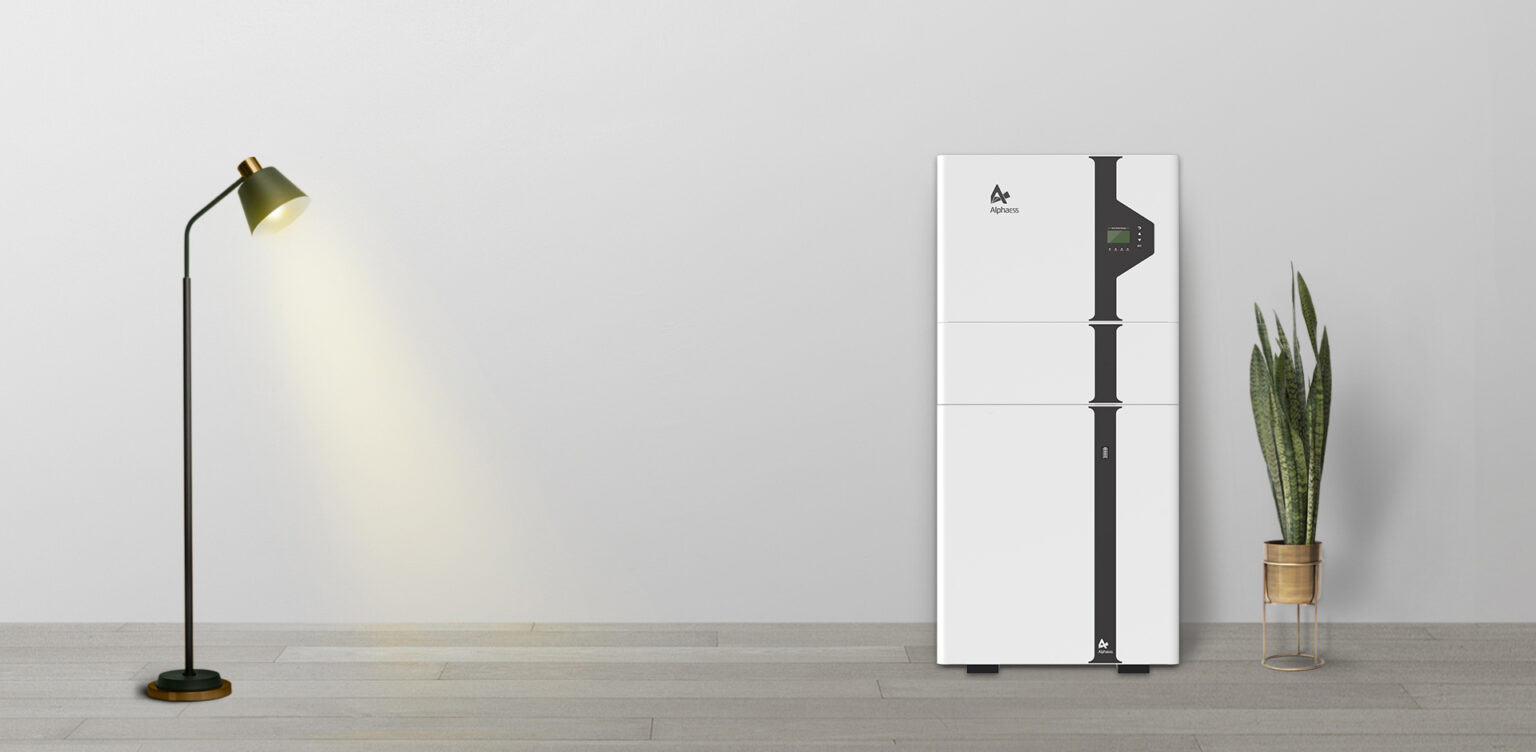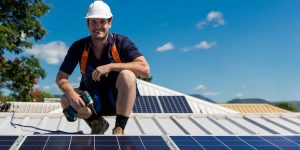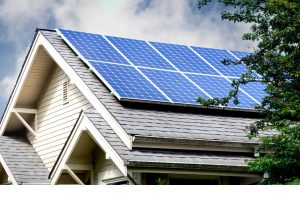In recent years, solar power energy has become more and more popular. More and more people are installing solar panels in their homes and businesses and for a good reason. Solar energy is a great way to save money on your energy bills, and it’s also good for the environment.
Even though solar panels are a leading renewable energy technology, there is still a lot of mystery around their installation. How much does solar energy cost? Do you require a battery? How exactly does solar energy work? Here are some of the myths around solar power energy and provide you with all the information you need to make an informed decision about whether or not solar is right for you.
How Does Solar Energy Work?
Solar panels work by converting sunlight into electricity. When the sun shines on a solar panel, its photovoltaic cells convert the light into energy. This energy is then sent to an inverter, converting it into usable electricity for your home or business.
Solar panels can be installed on your roof or in your yard. They come in various shapes and sizes, so you can find one that will fit your needs. You don’t need to have a lot of space to install solar panels.
How Solar Power Is Used?
You can use solar power to heat your home, power your appliances, and even generate electricity. Solar panels can be used to heat your home in two ways:
- Passive Solar Heating
This type of solar heating doesn’t require any special equipment. It works by using the sun’s energy to help heat your home. To do this, you’ll need to install windows and doors that allow sunlight to enter your home, and you’ll also need to install insulation to keep the heat inside.
- Active Solar Heating
This type of solar heating uses special equipment, such as a solar water heater or a solar air heater, to help heat your home. Solar water heaters use the sun’s energy to heat water, which can then be used to power your appliances or heat your home. Solar air heaters use the sun’s energy to heat the air in your home.
How Much Does Solar Energy Cost?
The cost of solar energy depends on various factors, including the size of your system, the type of system you choose, and where you live. However, most people find that they save money on their energy bills by going solar. The average cost of a solar panel system is about $16,800. However, the cost of your system will depend on the factors mentioned above. You may be able to get a discount on the cost of your system if you live in certain states or if you install a solar panel system that is eligible for tax credits.
You May Need A Battery
If you live in an area where the electricity grid is unreliable, you may need to install a battery with your solar panel system. A battery will store energy from your solar panels so that you can use it when the sun isn’t shining. Most people don’t need a battery because the electricity grid is reliable in most country areas. However, if you live in an area with frequent power outages, a battery may be a good option for you.
Solar Power Energy Is Good For The Environment
One of the best things about solar power energy is that it’s good for the environment. Solar energy doesn’t produce any emissions, so it doesn’t contribute to climate change. Installing solar panels is a great way to reduce your carbon footprint and positively impact the environment.
History Of Solar Power
Solar power has been used for centuries. The first recorded use of solar energy was a sundial, which you used to tell time. Solar energy was also used to power boats and cars in the early 1900s. However, it wasn’t until the 1950s that solar panels were developed.
They originally developed solar panels for use in space. Moreover, they used them to power satellites and other spacecraft. In the 1970s, they installed solar panels on homes and businesses. Solar energy became more popular in the 1980s as the cost of solar panels decreased.
Nowadays, solar power is one of the most sustainable and affordable forms of energy. It’s a great option for people who want to reduce their carbon footprint and help the environment.
Types Of Solar Power Systems
You can use solar energy in a variety of ways. Solar thermal energy sources absorb heat from the sun for usage, such as concentrated solar power systems, solar cooking systems, and solar hot water systems. You typically think of solar panels and photovoltaic solar systems when you think of solar electricity. The majority of residential solar power systems are photovoltaic and fall into one of three categories:
- Grid-connected systems
Grid-connected systems are the most common type of solar system. They allow you to sell excess energy back to the grid, and they typically require a small amount of backup from the grid when there is not enough sun shining.
- Off-grid systems
Off-grid systems are used in areas with no access to the electrical grid. They typically include a battery to store energy from the sun.
- Hybrid systems
Hybrid systems combine grid-connected and off-grid systems. They allow you to use solar power when the grid is down, and they also sell excess energy back to the grid.
You can choose the type of solar system best for you based on your needs and the availability of sunlight in your area.
What Components Make Up A Solar System?
A solar system typically includes the following components:
- Solar Panels: Solar panels are used to convert sunlight into electrical energy.
- Inverter: An inverter converts the direct current (DC) power produced by your solar panels into alternating current (AC) power, which most appliances use.
- Storage Battery: A storage battery stores energy from your solar panels so that you can use it when the sun isn’t shining.
- Charge Controller: A charge controller regulates energy flow from your solar panels to your battery. It also protects your batteries from overcharging.
- Monitoring System: A monitoring system allows you to track your solar system’s performance and make necessary adjustments.
How Are Solar Panels Made?
Solar panels are made up of photovoltaic cells. Photovoltaic cells are made of silicon, which is a semiconductor material. When sunlight shines on the cell, it creates an electrical current.
The most common type of solar panel is called a monocrystalline panel. Monocrystalline panels are made from a single piece of silicon. They are efficient and durable, but they can be expensive.
Polycrystalline panels are made from multiple pieces of silicon. They are less efficient than monocrystalline panels, but they are cheaper to produce.
Thin-film solar panels are the least efficient type of solar panel, but they are also the cheapest to produce.
How Are Solar Systems Designed?
When developing solar systems, two major variables are considered: available space and energy consumption. The details of solar system design are based on these two factors; therefore, a full understanding of them is critical for a well-planned solar installation.
Available Space
Available space is the amount of roof or ground area available to install solar panels. It is important to note that not all available space can be used for solar, as some areas must be left clear for ventilation and access.
Energy Consumption
Energy consumption is the amount of energy used daily. This can be measured in kilowatt-hours (kWh). Solar system designers use energy consumption to determine the size of the solar system that is needed to meet the household’s energy needs.
After considering available space and energy consumption, solar system designers will develop a plan that includes the number and type of solar panels, the inverter size, the type of batteries, and the monitoring system. Once the plan is developed, you can install the solar system.
Installing a solar system can be a big project, but it is rewarding.
What Are the Benefits Of Solar Energy?
There are many benefits to using solar energy:
- Solar energy is renewable and sustainable.
- Solar energy does not produce emissions of pollutants.
- Solar energy is a great option for people who want to reduce their carbon footprint.
- Solar energy is a great option for people who want to help the environment.
- Solar energy is a great option for people who want to reduce their dependence on fossil fuels.
- Solar energy is a great option for people who want to save money on their energy bills.
What Are The Disadvantages Of Solar Energy?
There are some disadvantages to using solar energy:
- Solar power requires a large upfront investment.
- Solar power systems require regular maintenance.
- Solar panels can only generate power when the sun is shining.
- In some areas, solar energy may not be available due to a lack of sunlight.
The Future Of Solar Power Is Bright
The future of solar power is looking bright. The cost of solar panels continues to decrease, and more people install solar panels every day. Solar energy is a sustainable form of energy that is good for the environment. It’s a great option for people who want to save money on their energy bills and help the planet.
If you’re interested in solar power, now is a great time to invest in a solar panel system. There are many different systems to choose from, and the benefits of solar power make it a wise investment. Solar energy is the future of energy, and it’s time to start investing in it.
Quality Solar Panel offers a wide range of solar panel systems for your home or business. They have a team of experts who can help you choose the right system for your needs. Search for Solar Central Coast installation near me to learn more about solar power and how it can benefit you.
- The benefits of using solar power energy
- How to install a solar panel system in your home
- The cost of installing a solar panel system
- How much you can save on your monthly electricity bill by using solar power energy
- Tips for conserving energy and reducing your carbon footprint





